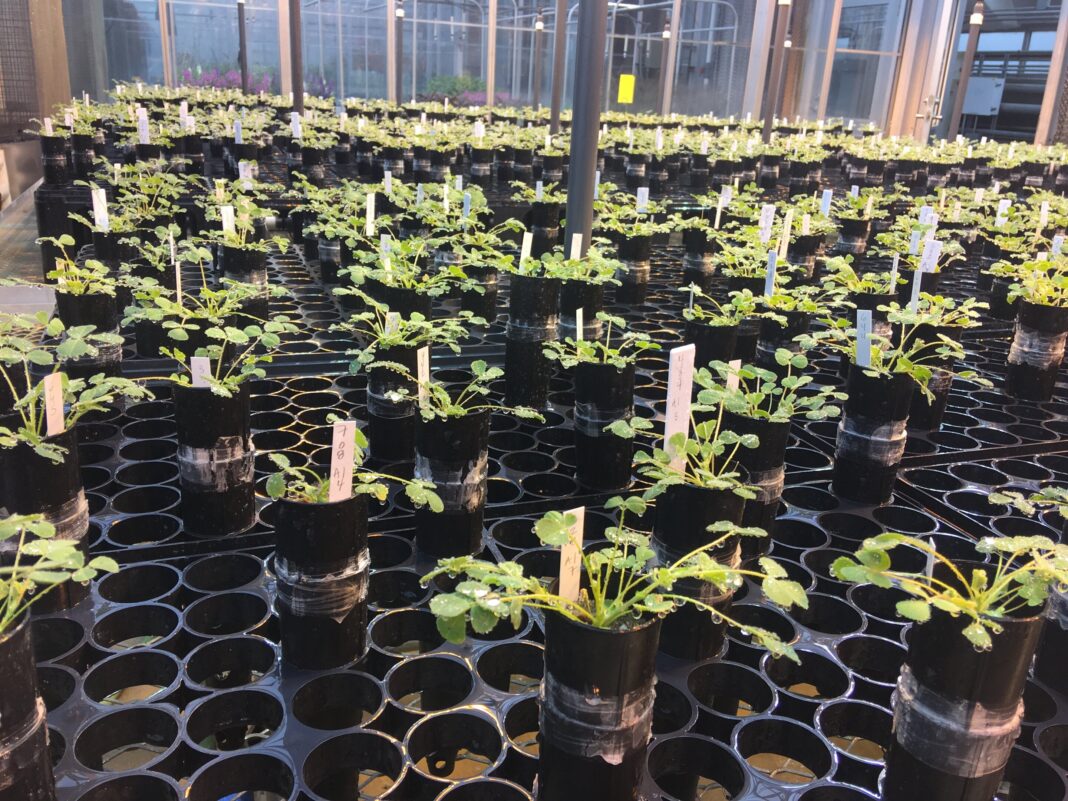The traditional idea of symbiosis — long-term interactions between two organisms — is that the participants mutually benefit each other. However, researchers have debated whether the interests of the symbionts always line up with the hosts they inhabit, or whether genes that benefit symbionts might come at the expense of their hosts. A new study investigates this question through genomic sequencing and infecting plant hosts with their microbial symbionts, writes Ananya Sen of the University of Illinois at Urbana-Champaign.
“It’s become obvious that crop health and our own health is governed by the microbes that we interact with. In agriculture, for example, there’s a big movement to try to engineer microbes to make happier plants,” said Katy Heath (IGOH), an associate professor of plant biology. “Our approach is a little different because we can measure all the genomic variations in a natural population of symbionts that have been interacting with their host for a long time to see what genes in nature are doing.”
“There’s this idea that microbes that interact with humans or plants are automatically beneficial because they have been living with them for a long period of time,” said Rebecca Batstone, a former postdoctoral fellow at the Carl R. Woese Institute for Genomic Biology. “However, a lot of work has shown that the interests of the symbionts don’t always align with that of the host they inhabit. We wanted to ask, at the genomic level, how much alignment there is between hosts and symbionts versus how much conflict.”
In their study, the researchers examined naturally occurring 191 strains of the microbial symbiont Sinorhizobium meliloti, paired with its host Medicago truncatula, a clover-like plant that is native to the Mediterranean region. The microbe resides in the root nodules of the plant and supplies it with nitrogen. The group paired each microbial strain with an individual plant, used a mix of strains, and infected the same plant, a competitive situation that often occurs in nature.
“In our experiments, we measured how well the plant does with the particular microbial strain,” Batstone said. “In addition to measuring plant growth, we also looked at microbial fitness by counting the number of nodules that were packed with these microbes, and measured the nodule size.”
The researchers sequenced the genomes of the microbial strains, and using a technique called genome-wide association, they were able to compare which bacterial genes are associated with plant growth.
“If there is an association, for example one gene of interest is strongly associated with plant growth, then it’s indicative that the gene might be important for controlling that trait,” Batstone said.
When they compared how many symbiont-genes align with the host’s interest, the researchers found that almost 80% of the genes that they identified seemed to be associated with alignment.
“In competitive environments, you might expect that there will be a decoupling between the interests of the host and symbionts because the symbionts are also competing with one another,” Batstone said. “This is a striking result because it shows that even though the symbionts are not evolving in order to benefit their hosts, it often pays for them to be beneficial.”
Although they worked with over 2,000 plants, the group would like to look at more hosts to see whether this trend holds true with a larger sample of plant types. They would also like to test these interactions under different environmental conditions.
“We did everything under low-nitrogen conditions because the plants are getting nitrogen from their symbionts. You can imagine that if you add nitrogen to the system, maybe you see more conflict,” Batstone said.
https://phys.org/news/2022-08-cooperation-conflict-symbionts.html


